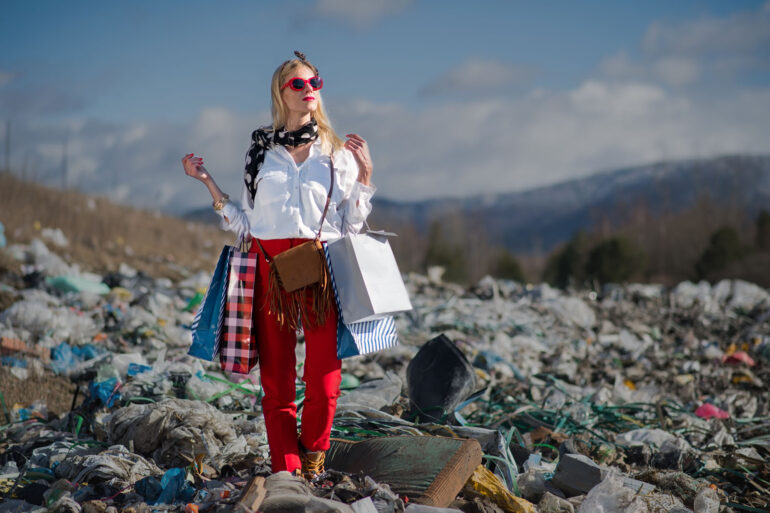The fashion industry which was once a symbol of innovation and glamor has quietly contributed to the devastation of many lives. The allure of cheap, quickly available, enforced through media, has resulted in a rise in the culture of disposable fashion. This trend of rapid manufacturing at cheap costs and high disposal rates comes with a hefty price.
According to the UN Environment Program, “the fashion industry is the second-biggest consumer of water.” One kilogram of cotton uses 10,000 liters of water, producing clothes that will eventually end up contaminating water sources. Fast fashion’s demands deplete intensive resources, from utilizing petroleum-derived synthetic fibers to being responsible for 10% of global carbon emissions. For instance, the tanning process in the production of leather is considered most toxic as chemicals such as mineral salts and coal-tar derivatives contaminate water sources.
Fast fashion facilitates a throwaway culture, where short-lived trends prompt disposal. Landfills overflow with clothing, taking long periods to degrade. Waste of textiles also contributes to greenhouse gas emissions, extending climate change.
The manufacturing process is harmful on a different level as harmful dyes, and bleaches not only contribute water contamination, but also endanger the lives of workers and communities. This industry supports exploitative labor practices, especially in developing countries. Fast fashion prompts the return of the industrial revolution, where workers endured long hours for low wages, working in unsafe conditions, furthering poverty and hindering social and economic development.
Take a Stand
As consumers and trendsetters, we have the ability to change. One way is through supporting ethical brands. Supporting slow fashion, and manufacturing that respects workers and their communities can help reduce inventory. Although we may not hold all the power to drive change, the government has the resources to advance such important causes. Implementing strict labor and environmental regulations to support research of sustainable materials, influence this growing industry to take accountability. Joining climate action organizations in your city or school, and voting for politicians that advocate for climate action are all effective methods to slow climate change. Donating to organizations that are focused on slow fashion, that help companies adopt eco-friendly production techniques is just another way we can indirectly protest fast fashion.
Contributing to fast fashion may only be regarded as a current trend by those who participate in it, but it also entails ignoring the lives of individuals who have spent endless hours working for wages below the minimum wage in order to support our demands. Supporting even a few effective practices helps reduce the implications behind fast fashion. From the wise words of Steve Maroboli, “The strength of one person can never be underestimated, for it is through the actions of one that the world can be changed.”


